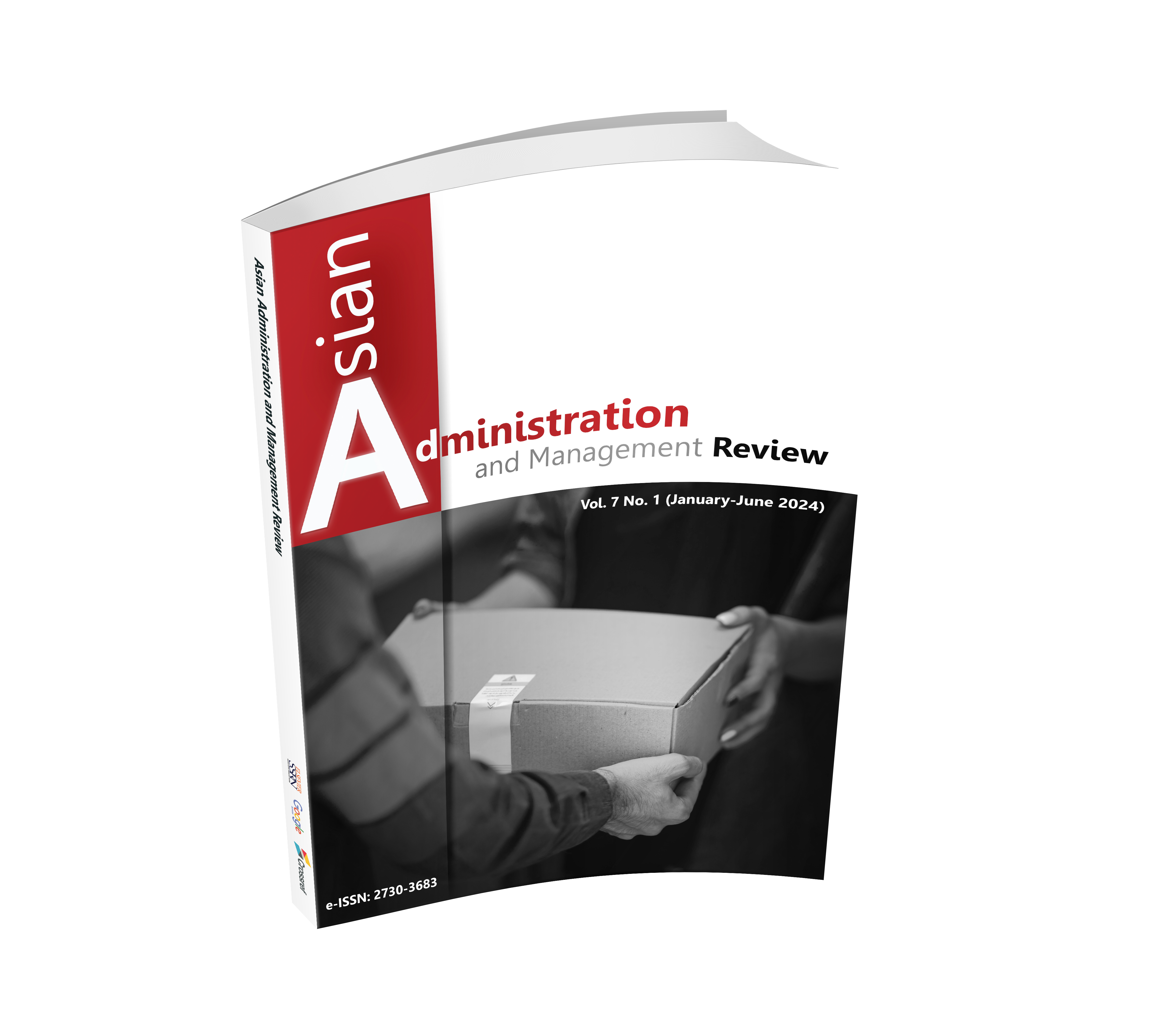FACTORS IN SELECTING SENIOR CITIZENS TO WORK IN THE HOTEL BUSINESS IN BANGKOK UNDER MODERN HUMAN RESOURCE MANAGEMENT
DOI:
https://doi.org/10.14456/aamr.2024.3Keywords:
Senior Citizens, Hotel Business, Human Resource DevelopmentAbstract
Nowadays, senior citizen workforce is a problem affecting the country is business sector due to a decreased birth rate. This makes the aging population structure is increasing, resulting in a higher proportion of the workforce. Meanwhile, the young workforce has a low increasing rate due to the low birth rate. This is an opportunity and challenge of human resource in changing workforce management and welfare. This is particularly on hotel business having stiff competition and facing workforce shortage. In addition, creating good experience to the organization results in the occurrence of human resource management in the new era of hotel business. Therefore, senior citizen workforce is the key to making a difference in the hotel business. However, to be able to do that must rely on a long work experience. This includes excellent service skill and a better understanding about the hotel organization culture. Thus, senior citizen workforce is a valuable one with accumulated experience for a long time. This creates a competitive advantage in the hotel business and replaces working-age workers very well. This article is therefore the presentation of human resource management in the modern era which requires managing the senior citizen workforce to drive the hotel business instead. In the future there will be a shortage of young workers so human resource professionals need to consider policy planning that is consistent with workforce conditions. This also includes skills and experience, work commitment and performance, personality and human relations, work behavior, compensation management, and welfare for senior citizen workers.
Downloads
References
Foundation of Thai Gerontology Research and Development Institute. (2020). Demographic Change in Thailand: Situation and Policy. Bangkok: Foundation of Thai Gerontology Research and Development Institute.
Hall, R. (1991). Organizations: Structures, Processes, and Outcomes. 5th ed. New York: Prentice-Hall.
Kaewthep, K., Suthamprasert, N., & Sermthong, E. (2011). Diverse People in Communication: Children, Women and the Elderly. Bangkok: Chulalongkorn University.
Khammadee, P., Jadesadalug, V., & Kongklay, J. (2017). Elderly Workers Management in Thailand: Cause and Effect. VRU Research and Development Journal Humanities and Social Science, 12(2), 23-34.
National Statistical Office. (2020). Survey of in Informal workers: Driving Polity 2020. Bangkok: National Statistical Office.
Wechayanon, N. (2011). New Dimensions of Human Capital Management. Bangkok: D.K. Printing World.

Downloads
Published
How to Cite
Issue
Section
License
Copyright (c) 2023 Authors

This work is licensed under a Creative Commons Attribution-NonCommercial-NoDerivatives 4.0 International License.











.png)


